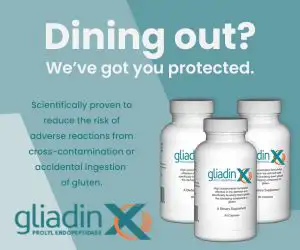-
Welcome to Celiac.com!
You have found your celiac tribe! Join us and ask questions in our forum, share your story, and connect with others.
-
Get Celiac.com Updates:Support Our Content
Getting glutened while in ketosis
-
Get Celiac.com Updates:Support Celiac.com:
-
Recent Activity
-
- trents replied to KRipple's topic in Celiac Disease Pre-Diagnosis, Testing & Symptoms1
Celiac or Addison's complications? Can someone share their experience?
Welcome to the forum, @KRipple! Sorry to hear of all your husband's health problems. I can only imagine how anxious this makes you as when our spouse suffers we hurt right along with them. Can you post the results from the Celiac blood testing for us to look at? We would need the names of the tests run, the numeric results and (this is important... -
- SportySue commented on Jefferson Adams's article in Origins of Celiac Disease6
Why Bananas No Longer Cure Celiac Disease
I am celiac also. Dr Elaine Gotschall once stated celiac is a carbohydrate problem as well. So that was important info for me. Even fruit makes intestines upset. Therefore veggie carbs also can cause me issues. I am backing away little by little in not eating but only small amounts. gluten-free food is unhelpful. Only the manufacturer thrives on all the ... -
- kate g posted a topic in Coping with Celiac Disease0
Are they close to a drug that will help celiacs with cross contamination
Ive read articles that there is stage 2 research being conducted for drugs that will limit damage to celiacs through cross contamination- how close are they to this will there be enough funding to create a mainstream drug? -
- KRipple posted a topic in Celiac Disease Pre-Diagnosis, Testing & Symptoms1
Celiac or Addison's complications? Can someone share their experience?
Hello, My husband has had issues with really bad diarreah for over nine months now. In mid November, he went to the doctor for what they thought was a bad cold, which two weeks later was diagnosed as bronchitis. A week later, in December, I had to take him back to urgent care and from there, to the emergency room cause his vitals were too low. They said...
-













Recommended Posts
Create an account or sign in to comment
You need to be a member in order to leave a comment
Create an account
Sign up for a new account in our community. It's easy!
Register a new accountSign in
Already have an account? Sign in here.
Sign In Now